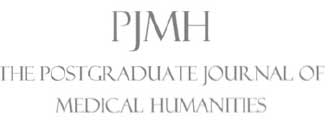PJMH: The Postgraduate Journal of Medical Humanities
PJMH: The Postgraduate Journal of Medical Humanities is an interdisciplinary journal open to postgraduate students across the globe, and reflects the varied and exciting research being carried out within the field of the medical humanities at present. The inaugural 2014 volume brings together research spanning the ancient to modern worlds, and covering a range of geographical locations and scholarly methodologies.
If you have any questions about the editorial process or PJMH: The Postgraduate Journal of Medical Humanities,please do not hesitate to get in touch with the Editors, Lottie Brown, Sophie Smith, Iris Gioti at pgmedhums@gmail.com.
As a part of the Universities of Exeter and Bristol, our values – ambition, challenge, collaboration, community, impact and rigour – are at the very heart of everything we do. We've used them to guide the creation of our strategy ensuring our goals and future successes reflect the type of institution we are – ambitious, co-operative, ethical, professional, and environmentally conscious.
We also use them to guide the way we behave so we continue to be a University that has a thriving, diverse and global community. EDI Policy Statement (PDF version).
Our Editorial Process
Our review process is designed to help the journal publish high quality, original Postgraduate research. Our Editorial Board and peer reviewers are integral to maintaining our high standards, which is why all submissions are processed as outlined below.
Initial Evaluation
Once the CFP deadline has passed, each submission is read by each member of the editorial team and discussed collaboratively, before being put to a vote. Submissions rejected at this stage are insufficiently original, have serious flaws in their arguments or content, or are outside the aims and scope of the journal or the edition’s theme. Those that meet the minimum criteria are normally passed on to two peer reviewers – an academic and a PhD student – with relevant expertise. Authors of manuscripts rejected at this stage will usually be informed within two weeks of the submission deadline.
Peer Review Process
PJMH employs ‘double blind’ reviewing, in which the reviewers remain anonymous to the author(s) throughout and following the refereeing process, whilst the identity of the author(s) is likewise unknown to the reviewers.
Reviewers from our international database are matched to submissions based on relevant expertise and research interests. Reviewers are asked to evaluate whether the submission is:
- Is original and contributes to gaps in the critical field
- Correctly references previous relevant work and developments in the research field
- Clearly adds to the knowledge and development of the field
Language correction is not part of the peer review process, but referees are encouraged to suggest corrections of language and style to the submission. In the final round, the handling Editor will check matters of linguistic and stylistic correctness and may suggest or apply corrections at this point. In rare cases, the manuscript may be returned to the author(s) for a full linguistic and stylistic revision.
The time required for the review process is dependent on the response of the peer reviewers. For PJMH, the typical time for the first round of the review process is approximately 6 weeks, with a maximum of three months. Should the referees’ reports contradict one another, or a report is unnecessarily delayed, a further expert opinion may be sought. In the rare cases when it is extremely difficult to find a second referee to review the manuscript, whilst the one referee’s extant report has thoroughly convinced the handling Editor, a decision to accept, reject or ask the author for a revision may be made, at the handling Editor’s discretion, based on only one referee report. The handling Editor’s decision will be sent to the author with the reviewers’ recommendations.
Once peer reviews have been submitted, all peer reviews are read by the Editorial Board. Each handling editor will then make the case for the inclusion of their submission, which will be voted on by the rest of the board.
A final decision to accept or reject the manuscript will be sent to the author along with the recommendations made by the reviewers, including (if applicable) the latter’s verbatim comments.
Caitlin Duggan – Editor
Caitlin is an AHRC SWWDTP PhD Researcher in History studying at the University of Bristol, the University of Exeter, and the Science Museum Group. Caitlin's doctoral research explores material cultures of NHS hospitals and utilises sensory, disability, and hospital histories alongside phenomenological approaches to material culture to understand embodied and affective relations to hospital objects and spaces.
Charlie Harris – Editor
Charlie Harris is a PhD student in Film and Television at the University of Bristol. His main areas of study are film history and genre development.
Sue Watson – Editor
Sue Watson is a part-time mature PGR in the Creative Writing Department at The University of Exeter. The creative element of her work is called, 'My Mother's Daughter' and her thesis looks at 'Life Writing for Mental Health Recovery After Attempted Filicide'. She is also assistant editor of Exclamation.
Adarsh Yadav – Editor
Adarsh Yadav is a PhD student at the University of Exeter’s Department of English. She is a member of the Wellcome Centre for Cultures and Environments of Health, University of Exeter. Her PhD research is looking at the ways in which contemporary South Asian literature especially the novel reflects, constructs and critiques care work through an exploration of illness, bodies, and mental health.
Alessia Silvestrin – Editor

